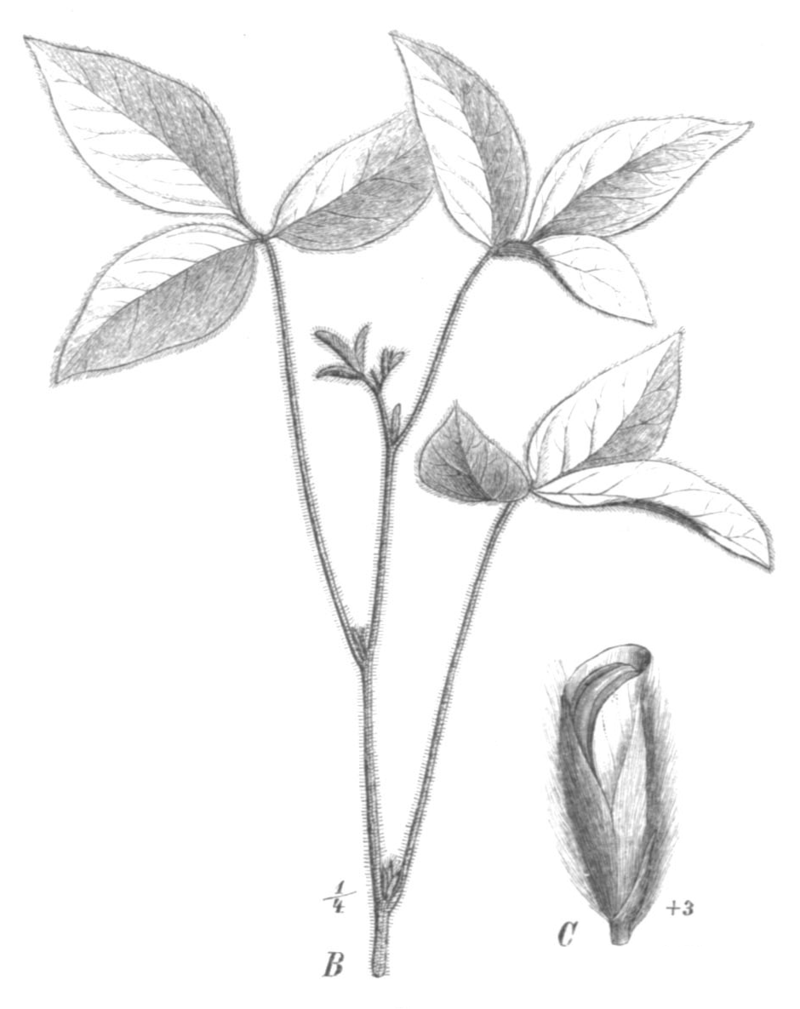
The humble soybean plant, Glycine max
Well. Today is the day, I decided, that I stop being vaguely suspicious and actually look up the cold, hard facts. Is there any evidence that soy is unhealthy? Is it linked to breast cancer or any other cancer? Is soy good for you?

Dangerous? Or just delicious?
It turns out that the evidence is in favour of soy being good for your health and not dangerous. It's full of protein, low in sugars, and cholesterol-free. Soy is especially healthy when you compare it to another source of protein: meat. You won't find any growth-hormones, cholesterol, trans fats, or antibiotics in soy. If you think about it, it's not surprising that soy is healthy; many Asian cultures have been eating soy products for millennia with no obvious ill-effects.
The main reason soy has come under suspicion health-wise is due to its isoflavones, which are weak phytoestrogens. Phytoestrogrens can mimic the activity of estrogen in animals, although they are much less potent than actual estrogen. Some breast cancers, called hormone-receptor-positive breast cancers, are triggered by estrogen. Could phytoestrogens from soy trigger these breast cancers? The weight of the evidence changes depending on whether you look at animal studies or human studies. Some, but not all, animal studies find that animals fed high doses of soy protein isolate or isoflavins have greater growth rates of breast tumours. Studies of humans, on the other hand, have found either no association of soy with breast cancer or a protective effect (!) of soy.

A ball-and-stick model of an estrogen molecule.

A ball-and-stick model of an isoflavone molecule. As you can see, it bears some similarity to the estrogen molecule.
The difference between the findings of the animal and the human studies could be for a couple of reasons. First, maybe the study animals (usually rats) and humans metabolize soy differently. What's good for one animal maybe be poison for another. Think how chocolate is poisonous for dogs, for example. Another reason may be that the animals were fed high doses of soy protein isolate or isoflavones while humans often eat soy in less processed contexts. It could be that soy protein isolate (often found highly processed soy protein supplements or soy "meats") is associated with breast cancer while more traditional forms of soy are not.

It may be better to stick to traditional soy foods and avoid highly processed soy foods.
Sticking to non-processed soy has other benefits as well. You'll avoid the high salt, fat, and sugar levels often added to processed food. Traditional ways of processing soy also remove lectins, protease inhibitors, and phytates, which are all substances found in soy that have raised the concerns of some researchers. Some time-tested healthy and delicious soy foods include tofu, miso, soy sauce, tempeh, and soymilk. Research about the health effects of soy protein isolate is not yet definitive and until more evidence is available, it may be prudent to avoid highly processed soy food. But as with most things, if soy veggie dogs are your weakness, a bit of processed soy foods probably won't do much harm. As for traditional soy foods, it looks like there's no need for suspicion after all!
To learn more about the health effects of soy, check out these links:
-The American Cancer Society quashes cancer alarm about soy
-Scientific American worries about the effect of excessive soy on babies
-The American Nutritional Association reviews a book that is critical of soy
-The New York Times explains that soy doesn't increase risk of cancer

No comments:
Post a Comment